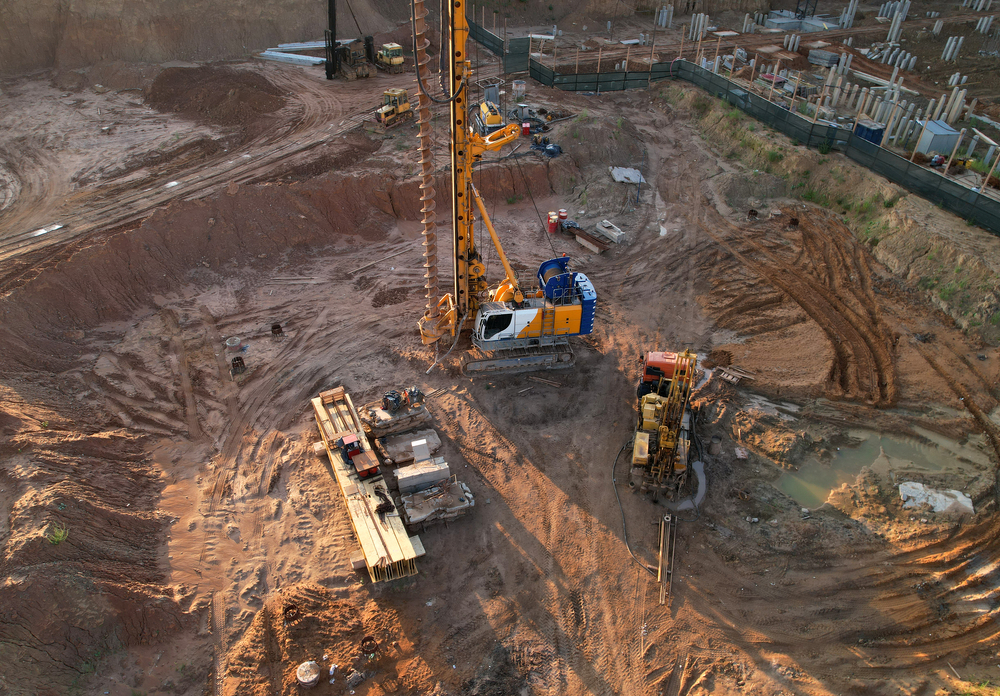Get This Report about Geotheta
Get This Report about Geotheta
Blog Article
Our Geotheta Diaries
Table of ContentsFacts About Geotheta RevealedThe Greatest Guide To GeothetaThe Of GeothetaThe Only Guide to GeothetaAll About Geotheta

They conduct website investigations, accumulate samples, carry out laboratory tests, and assess data to examine the viability of the ground for construction projects - Consulting Engineer. Based upon their searchings for, geotechnical engineers give referrals for foundation design, incline stability, keeping structures, and mitigation of geotechnical dangers. They collaborate with various other specialists, such as architects, architectural engineers, and building and construction teams, to make sure that geotechnical considerations are integrated right into the general job design and execution
By analyzing the habits and properties of dirt and rock, they can recognize potential geotechnical dangers such as landslides, dirt negotiation, or slope instability. Their experience aids prevent failures or mishaps that could jeopardize lives and residential or commercial property. Below are some in-depth obligations and obligations of a geotechnical engineer: Website Investigation: Geotechnical designers conduct site investigations to collect information on subsurface problems.
They interpret the information to understand the properties and habits of the soil and rock, including their strength, permeability, compaction features, and groundwater conditions. Geotechnical Evaluation and Style: Geotechnical designers evaluate the data gathered throughout website examinations to assess the security and suitability of the site for construction tasks. They execute geotechnical calculations and modeling to assess factors such as bearing ability, settlement, slope stability, lateral earth pressures, and groundwater circulation.
Some Of Geotheta
Foundation Style: Geotechnical engineers play a critical role in making foundations that can securely sustain the designated structure. They assess the dirt problems and lots needs to determine the suitable foundation type, such as shallow structures (e.g., footings), deep structures (e.g (https://packersmovers.activeboard.com/t67151553/how-to-connect-canon-mg3620-printer-to-computer/?ts=1722609175&direction=prev&page=last#lastPostAnchor)., stacks), or specialized methods like soil improvement. They think about variables such as settlement limitations, birthing capability, and soil-structure interaction to develop optimal structure styles
They review building strategies, screen website activities, and conduct area inspections to verify that the design suggestions are complied with. If unforeseen geotechnical concerns develop, they evaluate the situation and give suggestions for remediation or adjustments to the layout. Threat Evaluation and Mitigation: Geotechnical engineers evaluate geotechnical hazards and risks connected with the task site, such as landslides, liquefaction, or dirt disintegration.

Partnership and Interaction: Geotechnical engineers function closely with other professionals associated with a task, such as engineers, architectural engineers, and building and construction groups. Effective interaction and partnership are essential to incorporate geotechnical considerations into the overall task style and construction procedure. Geotechnical engineers offer technical proficiency, solution queries, and make certain that geotechnical demands are met.
Indicators on Geotheta You Should Know
Below are some sorts of geotechnical designers: Structure Designer: Structure designers concentrate on designing and examining structures for frameworks. They analyze the soil conditions, load requirements, and site qualities to figure out one of the most ideal foundation kind and design, such as shallow structures, deep structures, or specialized strategies like heap foundations.
They assess the aspects influencing slope security, such as soil residential properties, groundwater conditions, and incline geometry, and create strategies to stop incline failings and alleviate threats. Earthquake Engineer: Earthquake designers concentrate on evaluating and creating frameworks to stand up to seismic forces. They examine the seismic danger of a website, review soil liquefaction capacity, and develop seismic design criteria to make sure the safety and security and strength of frameworks throughout quakes.
They perform field testing, collect samples, and assess the collected information to define the soil properties, geologic developments, and groundwater problems at a site. Geotechnical Instrumentation Designer: Geotechnical instrumentation engineers concentrate on tracking and measuring the behavior of dirt, rock, and structures. They set up and maintain instrumentation systems that keep an eye on elements such as dirt negotiation, groundwater degrees, incline motions, and structural variations to Consulting Engineer evaluate performance and give early cautions of prospective concerns.
A Biased View of Geotheta
They perform tests such as triaxial examinations, combination examinations, straight shear tests, and permeability examinations to collect data for geotechnical evaluation and design. Geosynthetics Designer: Geosynthetics engineers focus on the design and application of geosynthetic materials, such as geotextiles, geogrids, and geomembranes. They use these materials to enhance dirt stability, reinforce slopes, offer water drainage services, and control erosion.
They tend to be investigatory people, which suggests they're intellectual, reflective, and inquisitive. They are interested, systematic, rational, analytical, and rational. Some of them are also social, implying they're kind, generous, cooperative, client, caring, handy, understanding, sensible, and pleasant - Geo Tech Engineering.
In the office environment, geotechnical designers use specialized software program tools to carry out computations, produce designs, and analyze information. They prepare records, evaluation project specifications, communicate with customers and staff member, and coordinate project tasks. The office setting offers a helpful atmosphere for research, evaluation, and collaboration with other professionals associated with the task.
The smart Trick of Geotheta That Nobody is Talking About
They often see job sites to carry out website examinations, analyze geotechnical problems, and gather information for analysis. These brows through involve taking a trip to different places, in some cases in remote or tough surfaces. Geotechnical engineers might perform soil tasting, conduct examinations, and screen building tasks to make sure that the geotechnical elements of the task are being carried out properly.
Geotechnical engineers additionally work in specialized geotechnical research laboratories. Geotechnical research laboratory designers work extensively in these atmospheres, taking care of testing equipment, operating instruments, and taping information.
Report this page